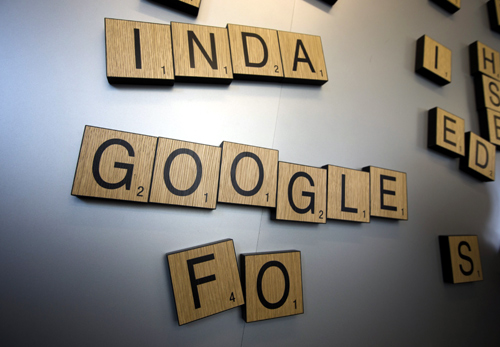Photographs: Dominic Xavier/Rediff.com Divya Nair
Recruiting agencies both national and international are looking at your social media profiles to find out if you are fit to be hired. What are they looking for and what must you do to make the most of the opportunity?
Arjun Joshi, an MBA graduate who was also a topper through school and college applied for the position of a team leader in a leading IT firm.
Since he had the perfect CV and his profile matched the requirements, Joshi was confident he would crack the interview.
However, after two gruelling rounds -- a written test followed by a group discussion round -- Joshi, who was among the top three contenders for the post, did not make it to the personal interview round.
Although Joshi would never find out why he failed to make it, Sharda Mehta, a senior HR professional based in Mumbai whose recruitment agency was supervising the recruitment process reveals the real reason behind his rejection.
“Before inviting Joshi for the final interview, we ran a Google search by his email and landed on his blogger profile.
“Since the company had insisted that the candidate should be ‘an effective communicator’ and ‘socially outgoing’, we decided to browse through the posts to understand his social views.
“Much to our surprise, some of the posts were targeted at the fairer sex. This candidate had a very narrow view about Indian women -- in one of his posts he’d stated that women did not deserve to share equal space as men and most of them had bribed their way to the top.
“Since the post was written only a few months ago, I shared the links with a senior colleague who agreed with me that the guy was not fit to lead the team.”
Mehta has worked with leading job portals like Monster.com and Naukri.com. She reveals that sometimes “casual and unintentional social media behaviour can impact hiring decisions.”
In fact, according to a recent survey by CareerBuilder.com, 43 per cent hiring managers who currently research candidates through social media said they have found information that has caused them not to hire a candidate.
That brings us to the prime question: What are recruiters looking for in your social media profiles?
Most importantly, what is that piece of information that can rob you of your career opportunity?
We spoke to a bunch of hiring managers who have used social media profiles as one of the many tools to finalise recruitment.
Here is what they have to say to all prospective hires.
1. Google yourself
Photographs: Mark Blinch/Reuters
A few years ago, a 20-something journalism graduate had applied for an internship at a content management portal. She was asked to e-mail a few samples of her writing by a Gurgaon-based consulting firm.
A random Google search of the writing sample by this firm revealed that the content was not original -- it was in fact, posted on a popular website almost a year ago, under a different author name.
Upon questioning this candidate, it was revealed that both the write-ups belonged to her. But she had failed to mention that she had written it previously for the website. The latter, as part of their content policy, had published it under a pseudonym.
Sarvesh Agrawal, CEO and founder of Internshaala.com, who shared the above example, says the simplest thing recruiters do is to look for publicly available information.
They type your name on Google and browse the first few links that lead to you -- it could be your Facebook, LinkedIn, blogs or random photo sharing applications.
Recruiting expert Sharda Mehta particularly warns that although people are careful to update their Facebook and LinkedIn profile, they forget about the information available on their blogs and photo-sharing websites.
She advises every professional to run a random search online and delete stuff that can possibly impact their career. This applies to senior professionals as well, she adds.
“As we grow up and get busy in our careers, we tend to forget about all that we posted and shared as teenagers or fresh graduates. Some of it must have been written out of mere frustration or desperation to vent your emotions. You must ensure you clean up your social profiles from time to time to avoid giving explanations later,” counsels Mehta.
2. Mind your spelling and grammar
Photographs: Dominic Xavier/Rediff.com
According to a recent survey conducted among 1,600 hiring managers by leading career site Jobvite.com, 61 per cent respondents confessed that spelling and grammar mistakes in social media posts are held against candidates.
Hiring specialist Vedant Mistry of Excel Consultants, Navi Mumbai, shares some of the worst spelling mistakes people make in their social profiles:
“Mistakes like ‘carrier’ (instead of ‘career’), random typographical errors and frequent use of SMS lingo (m workg with XYZ company) paint a very sorry picture of the candidate. It just shows how callous you are.”
How can you expect to hire someone who’s lazy enough to overlook spell-check, he questions.
3. Steer clear of offensive content
Photographs: Dominic Xavier/Rediff.com
Remember the criticism Shashi Tharoor evoked from his own colleagues when he used the word ‘cattle class’ to describe the economy class on Twitter?
Rajesh Nair, CEO, TopGear Consultants Pvt Limited uses Tharoor’s example to explain why one must steer clear of offensive content on social networking sites.
“Everything you write in public domain is recorded and archived. You may post and forget about it, but you never know when it can come back and haunt you,” he warns.
Nair suggests that professionals avoid the following: badmouthing both the past and current employer; posts or comments that display extreme political opinion, and sharing insensitive posts about religion, caste or gender.
In Nair’s opinion, even casual posts like: ‘Awful Monday again’; ‘Had a boring day at work’ or ‘Can’t wait to end this meeting’ can be held against you.
“Everyone has bad days, but if you are having too many of those days and find pleasure telling others how much it bothers you, it is perhaps time you start looking for a new job,” he adds.
Pay attention to what others or your friends are posting on your profile and what you're tagged in to protect your online image, suggests Ajay Shakya, co-founder, OpportuneJobs.com. “Avoid posting provocative and inappropriate photos or information yourself,” he adds.
4. Show humility
Photographs: Dominic Xavier/Rediff.com
Sarvesh Agrawal says that humility is a virtue he looks for in new hires.
“If I find that the candidate is too boastful and is only talking about his/her own achievements on his social networks, it will worry me.
“It should ideally be the other way around -- if you are good enough, other people should be talking about your achievements.
“You can post samples of your work and mention your achievements, but let it not stay at ‘I-me-myself’,” says Agrawal.
5. Update your public profile
Photographs: Uttam Ghosh/Rediff.com
Recruiters advise prospective hires to update their LinkedIn and Facebook profiles.
“If you are an aspiring photographer, you might want to upload some of your best work on a photo-sharing platform; if you are a writer, we’d expect you to update your blog. In any case, you must update at least your current and past work experience,” says Vedant Mistry.
According to Varun Aggarwal, CEO, TopTalent.in, some IT companies are very particular about social media behaviour and hire agencies to run background checks on their behalf before short-listing a potential hire.
“Companies like Microsoft and Morgan Stanley insist on social media fitness. They also check the candidate’s profile on forums like stackoverflow.com, github.com and Quora among others,” adds Aggarwal.
Rajesh Nair disagrees with Mistry. He says, “As people advance higher up in their career, you cannot expect them to update their profiles on Monster.com or Naukri.com.
“Professionals in senior management positions like CEOs and CFOs will share glimpses of their work and achievements on LinkedIn and Glassdoor, but their profiles may be incomplete.
“In such cases, an incomplete profile may not be held against the candidate, but if called for an interview, s/he will be asked to furnish details of his/her academic proficiency and explain gap years in the professional career, if any.”
6. Cultural fit
Photographs: Uttam Ghosh/Rediff.com
When employers look at your social profiles, they are ideally looking for an employee who will fit in and adapt to the culture of the organisation.
Much as you hate your current boss and employer, when you represent a company, you have to maintain a certain level of confidentiality and be discreet, says Rajesh Nair.
“Unless you are in the entertainment industry, avoid posting on a social networking site extreme political reactions, insensitive and soft porn links, pictures of you getting sloshed at a party, and particularly intimate pictures of you with your better half,” suggests Vedant Mistry.
According to him, every employer wants to hire an employee who fits in culturally and socially, is loyal and good at his work, and has respect for his previous organisation.
Nair puts it more appropriately. “It is not where you are in your career right now, but where you eventually want to be that matters.
“A few years down the line, when you look back, you will definitely not feel proud about some of the negative things that happened in your life, and badmouthing your company and employer is one of them.
“The best way you can advance in your career is by being diplomatic (read neutral) and confidential about your extreme views.”








Comment
article